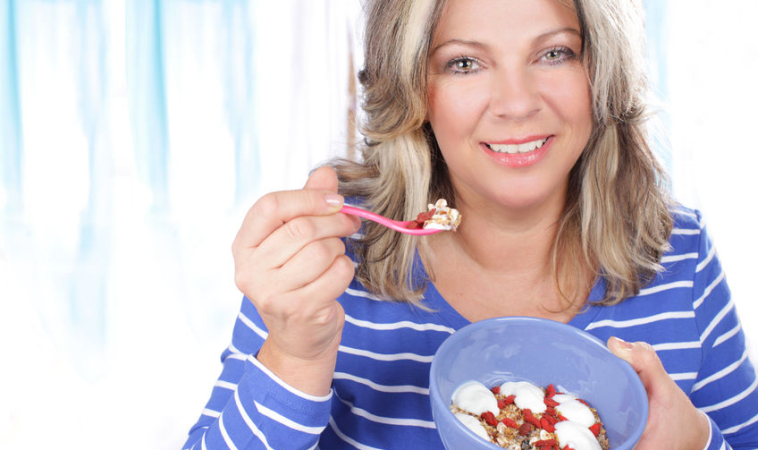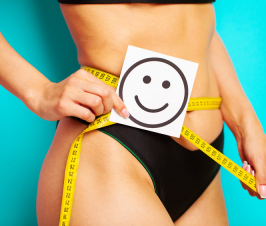A recent Brazilian study determined that heavier women tend to have more vasomotor symptoms associated with menopause; hot flashes, and night sweats. The reason for this may be that fat insulates the body and helps retain heat. The more fat a person has, the more heat is retained and this disrupts the body’s ability to distribute it, and also get rid of it (cool down). Fat also stores toxins and is hormonally active, both factors which could influence menopause, and the experience of symptoms associated with aging – joint pain, fatigue, insomnia, or depression.
Studies Show Weight Loss and Exercise Reduce Hot Flashes
Studies have shown that weight loss and exercise do have effects to reduce hot flashes in women who are overweight. A diet or a dietary treatment plan which promotes detoxification is also likely to help significantly. As the body becomes more and more burdened by toxins and the liver and digestive system get bogged down, it gets harder and harder for the body to maintain balance – ie, hot flashes – a diet which promotes the elimination of toxins through proper digestion, which includes cleansing the liver will not only help with weight loss, but will help the body maintain balance. Remember, that the body is constantly attempting to find balance and to heal itself. All symptoms are a sign that something is trying to “right” itself. The symptoms become more and more intense as we get farther and farther off balance. Menopausal symptoms are no different.
Diet, Exercise & Weight Loss May Balance Hormones Better Than Herbs & Supplements
There are many herbs and supplements which are marketing to help balance hormones for post-menopausal women. Some of these herbs and supplements are great, but for maximum benefit, a healthy diet, weight loss, and exercise has been shown in studies to be of greatest benefit. Intermittent fasting may help re-set metabolism and aid in detoxification, as well as a diet rich in fruits and vegetables, plenty of water, and low, low, low in refined sugar and processed foods. Any movement which is enjoyable will be beneficial – 30 minutes every day.
 Node Smith, associate editor for NDNR, is a fifth year naturopathic medical student at NUNM, where he has been instrumental in maintaining a firm connection to the philosophy and heritage of naturopathic medicine amongst the next generation of docs. He helped found the first multi-generational experiential retreat, which brings elders, alumni, and students together for a weekend campout where naturopathic medicine and medical philosophy are experienced in nature. Three years ago he helped found the non-profit, Association for Naturopathic ReVitalization (ANR), for which he serves as the board chairman. ANR has a mission to inspire health practitioners to embody the naturopathic principles through experiential education. Node also has a firm belief that the next era of naturopathic medicine will see a resurgence of in-patient facilities which use fasting, earthing, hydrotherapy and homeopathy to bring people back from chronic diseases of modern living; he is involved in numerous conversations and projects to bring about this vision.
Node Smith, associate editor for NDNR, is a fifth year naturopathic medical student at NUNM, where he has been instrumental in maintaining a firm connection to the philosophy and heritage of naturopathic medicine amongst the next generation of docs. He helped found the first multi-generational experiential retreat, which brings elders, alumni, and students together for a weekend campout where naturopathic medicine and medical philosophy are experienced in nature. Three years ago he helped found the non-profit, Association for Naturopathic ReVitalization (ANR), for which he serves as the board chairman. ANR has a mission to inspire health practitioners to embody the naturopathic principles through experiential education. Node also has a firm belief that the next era of naturopathic medicine will see a resurgence of in-patient facilities which use fasting, earthing, hydrotherapy and homeopathy to bring people back from chronic diseases of modern living; he is involved in numerous conversations and projects to bring about this vision.

















